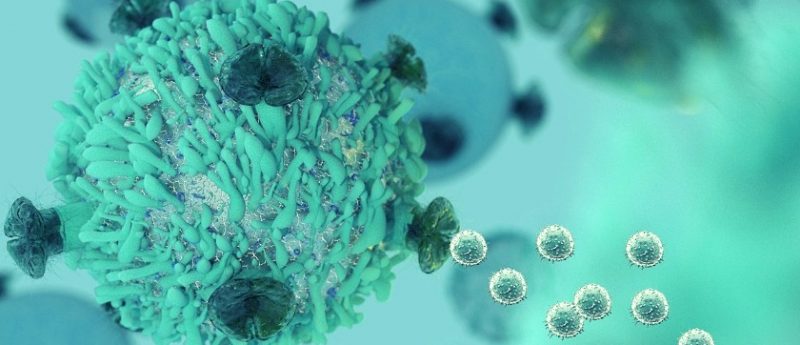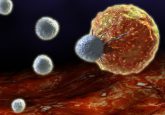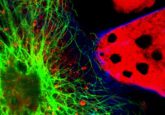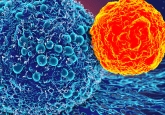Key mechanism that drives hormone therapy resistance in prostate cancer uncovered

A study in mice and human prostate cancer cells has demonstrated that blocking the protein IL-23, which is produced by granulocytic myeloid-derived suppressor cells, can restore tumor cells sensitivity to hormone therapy. The findings were recently published in Nature.
Hormone therapy is a mainstay of prostate cancer treatment – but tumor cells can grow resistant, leading to a hard-to-treat, advanced form of the disease.
In this study, the researchers studied mice along with tumor and blood samples from prostate cancer patients. From this they were able to show that blood and tumor samples from men with resistant prostate cancer contained higher levels of myeloid-derived suppressor cells and IL-23 than those from men whose cancer still responded to hormone therapy.
Furthermore, when they studied mice with prostate cancer that no longer produced IL-23, they observed that their tumors shrank considerably, and cancer cells grew more slowly. Additionally, it took longer for the prostate tumors to become resistant to hormone therapy and the mice survived for a longer period of time.
The findings give the researchers confidence that they have identified a key mechanism that drives hormone therapy resistance in prostate cancer.
“This new study has uncovered a completely new way to modify the immune system to combat prostate cancer,” Paul Workman (Institute of Cancer Research, London, UK) commented.
“Our study found an important interaction between hormone signalling and the immune system. We believe we could exploit this to reverse hormone resistance in prostate cancer, and boost the effect of widely used prostate cancer drugs such as enzalutamide,” added study author Johann de Bono from The Institute of Cancer Research and The Royal Marsden NHS Foundation Trust (both London, UK).
Clinical trials are now planned to investigate the possible benefit of this new form of immunotherapy alongside the next-generation hormone therapy enzalutamide, in men with advanced prostate cancer.
Sources: Calcinotto A, Spataro C, Zagato E et al. IL-23 secreted by myeloid cells drives castration-resistant prostate cancer. Nature doi:10.1038/s41586-018-0266-0 (2018) (Epub ahead of print); www.icr.ac.uk/news-archive/immunotherapy-drug-for-skin-disease-could-boost-hormone-treatment-for-prostate-cancer





